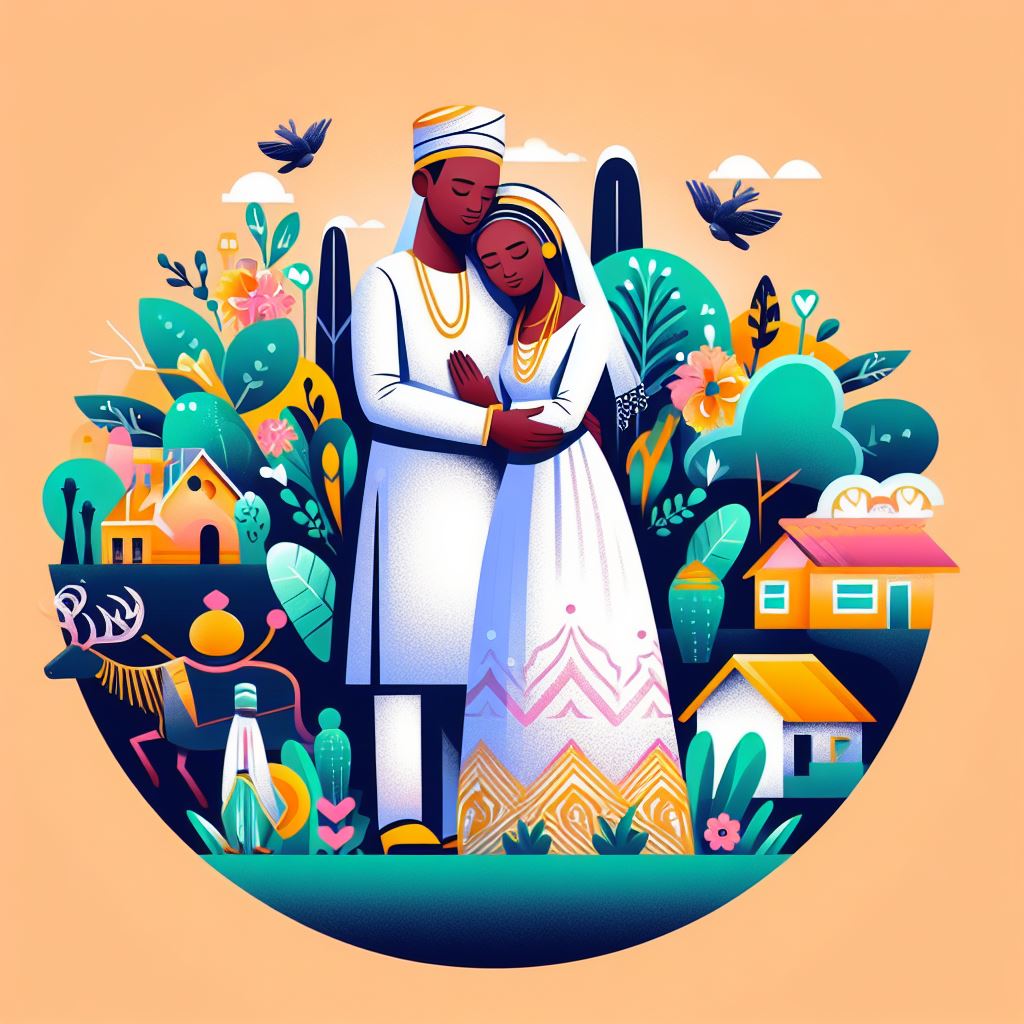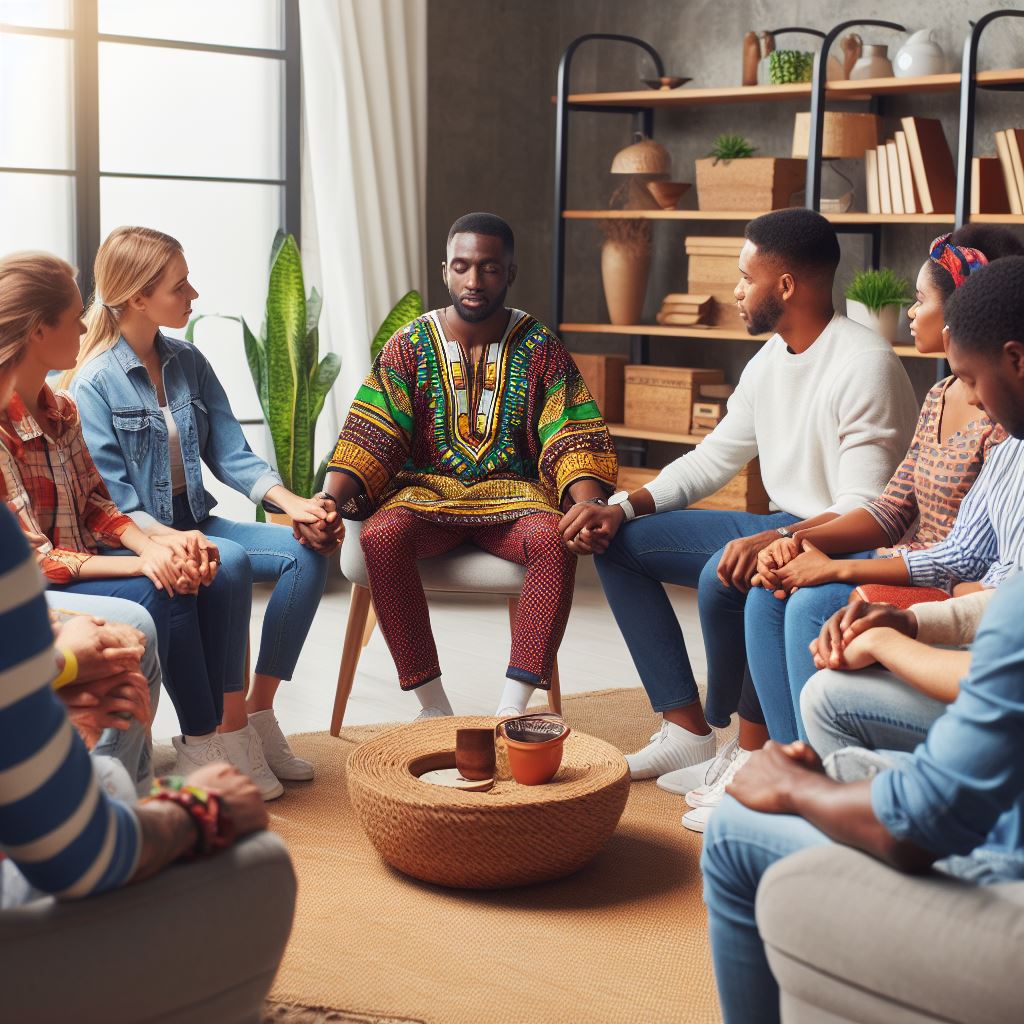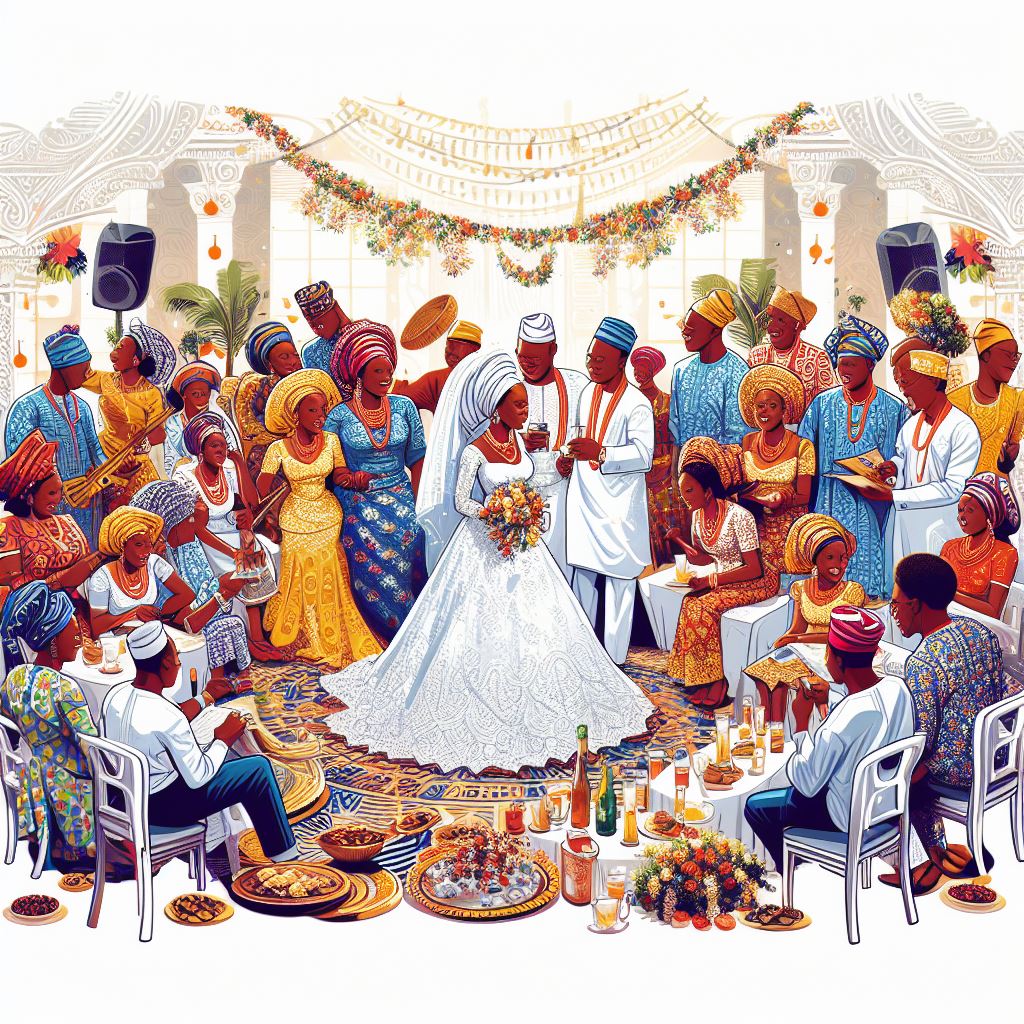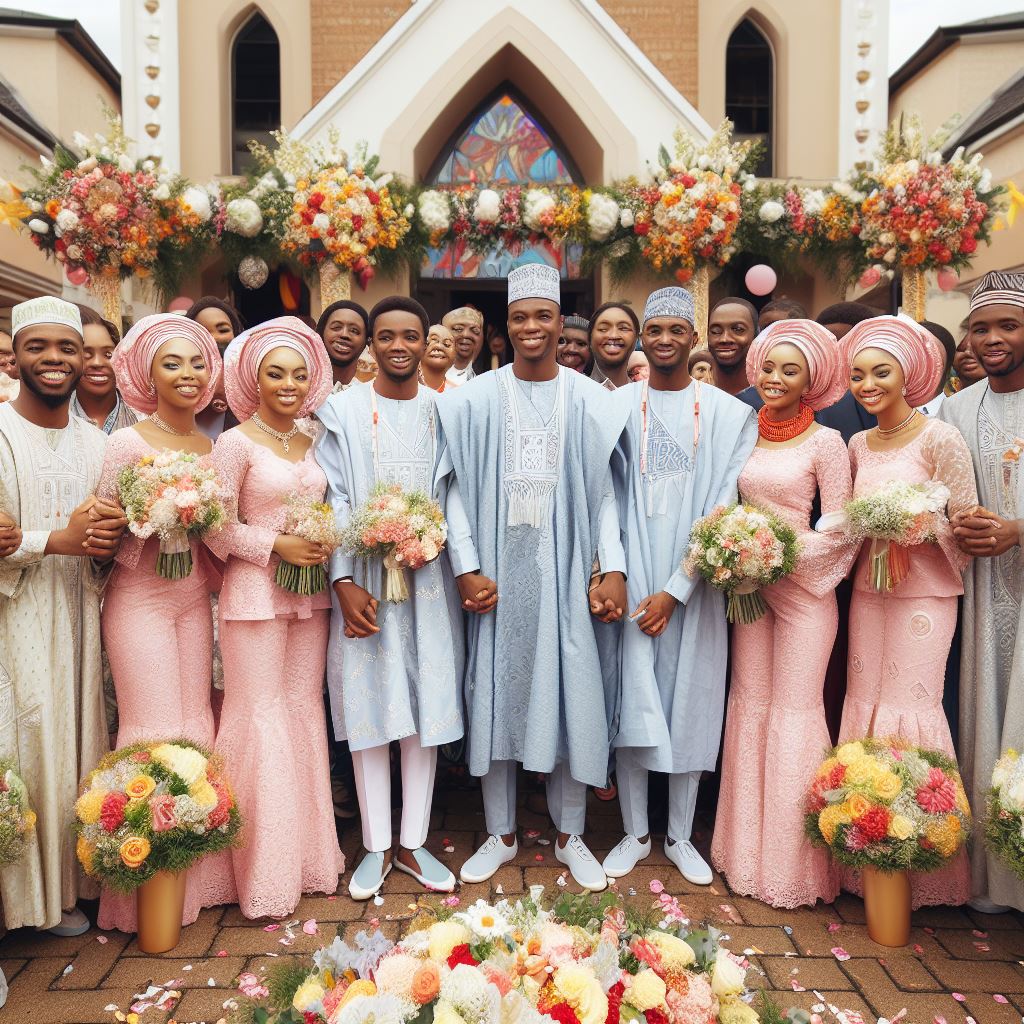Introduction
Inter-Tribal Marriage Defined
Inter-tribal marriage refers to the matrimony between individuals from separate ethnic groups within the borders of Nigeria.
It encompasses the amalgamation of diverse linguistic, traditional, and cultural backgrounds.
Rising Trend in Nigeria
Nigeria has witnessed a remarkable surge in inter-tribal marriages.
This surge can be attributed to factors like urbanization, increased educational opportunities, and economic mobility, which have eroded traditional barriers to inter-ethnic unions.
Addressing Cultural Gaps
The importance of addressing the cultural gaps in inter-tribal marriages cannot be overstated.
These gaps can lead to misunderstandings, conflicts, and even divorce.
Acknowledging and respecting each other’s cultural differences are vital for the success of such unions.
Purpose of this Blog Post
The primary purpose of this blog post is to delve into the intricacies of inter-tribal marriages in Nigeria.
We will explore the unique challenges faced by couples, provide guidance on navigating these hurdles, and emphasize the significance of embracing and celebrating the rich tapestry of cultures within these unions.
Understanding Cultural Differences
The diversity of Nigerian tribes
- Nigeria is home to over 250 tribes, each with its own unique culture and traditions.
- The diversity of Nigerian tribes contributes to a rich cultural heritage within the country.
- Some of the main tribes in Nigeria include the Hausa, Yoruba, Igbo, and Fulani.
- Each tribe has its own distinct language, dress, and traditional practices.
- Understanding and appreciating the diversity of Nigerian tribes is essential for counseling inter-tribal marriages.
Cultural practices, traditions, and customs
- Traditional practices, such as marriage ceremonies and rites of passage, differ among Nigerian tribes.
- For instance, while some tribes practice polygamy, others prefer monogamous relationships.
- Nigerian tribes also have different food preferences, music styles, and art forms.
- Religious beliefs, such as Islam, Christianity, and traditional African religions, also vary between tribes.
- Counselors need to have a deep understanding of these practices to effectively support inter-tribal couples.
Potential conflicts arising from cultural differences
- Cultural differences can lead to misunderstandings, conflicts, and challenges within inter-tribal marriages.
- Language barriers can create communication difficulties and misinterpretations between spouses.
- Parenting styles, gender roles, and expectations may vary significantly between tribes, causing conflicts.
- Conflicts arising from cultural differences should be addressed through open and respectful communication.
- By understanding and respecting each other’s cultural backgrounds, couples can overcome these challenges.
The need for cultural sensitivity and understanding
- Counselors play a crucial role in promoting cultural sensitivity and understanding within inter-tribal marriages.
- They should create a safe and non-judgmental space for couples to express their cultural differences.
- Counselors should encourage open dialogue and active listening to foster mutual understanding.
- By acknowledging and validating each partner’s cultural identity, counselors can strengthen the relationship.
- It is essential to embrace cultural diversity and encourage couples to learn from each other’s traditions.
Basically, understanding cultural differences is vital in counseling inter-tribal marriages in Nigeria.
The diversity of Nigerian tribes, their practices, traditions, and customs contribute to the uniqueness of each relationship.
However, these differences can also result in conflicts.
By promoting cultural sensitivity and fostering understanding, counselors can help couples navigate these challenges and build strong, resilient relationships.
Read: Marriage Counseling: Western Approaches vs. Nigerian Values
Challenges Faced in Inter-Tribal Marriages
Communication barriers due to language differences
In inter-tribal marriages, partners often encounter difficulties in effective communication due to varied languages spoken.
Communicating thoughts, emotions, and intentions becomes challenging, leading to misunderstandings and conflicts.
Language barriers can hamper open dialogue, hindering the development of trust, intimacy, and overall relationship satisfaction.
Partners must actively work towards finding common ground, adopting a shared language, or learning each other’s native languages.
Conflict resolution methods affected by cultural perspectives
Cultural perspectives greatly influence the conflict resolution methods used in inter-tribal marriages.
Each partner brings their own cultural background, with different beliefs, values, and ways of resolving conflicts.
This disparity in conflict resolution approaches can lead to misunderstandings, escalating disagreements, and relationship dissatisfaction.
Partners need to cultivate an understanding and acceptance of each other’s cultural perspectives to effectively resolve conflicts.
Differences in family expectations and values
Inter-tribal marriages often face challenges due to differences in family expectations and values.
Each tribe may have specific traditions, rituals, and expectations surrounding family dynamics, gender roles, and child-rearing.
Partners must navigate these cultural differences, communicate openly, and find common ground to build a harmonious family life.
Respect, compromise, and willingness to learn about each other’s traditions can help bridge these gaps and create a supportive environment.
Navigating through diverse religious beliefs and practices
In inter-tribal marriages, couples may encounter divergent religious beliefs and practices.
Religion plays a significant role in shaping one’s identity, values, and worldview.
Partners need to approach these differences with respect, open-mindedness, and a willingness to have open discussions.
Understanding and appreciating each other’s spiritual beliefs can foster mutual respect, tolerance, and a shared spiritual journey.
Inter-tribal marriages face various challenges that require active effort, understanding, and compromise from both partners.
As partners navigate through communication barriers, cultural perspectives, family expectations, and diverse religious beliefs, they can strengthen their bond.
These challenges, when tackled with patience and empathy, provide an opportunity for personal growth and an enriching inter-cultural experience.
By embracing and celebrating their unique cultural differences, inter-tribal couples can build a strong foundation for a successful and fulfilling marriage.
Read: How Religion Impacts Marriage Counseling in Nigeria
The Role of Counseling in Bridging Cultural Gaps
Inter-tribal marriages, characterized by couples from different indigenous backgrounds, are increasingly prevalent in our diverse society.
While such unions bring about wonderful opportunities for cultural exchange and growth, they also present unique challenges stemming from the merging of two distinct cultural identities.
That is where counseling plays a pivotal role in bridging cultural gaps and fostering harmonious relationships.
Importance of counseling for inter-tribal couples
Inter-tribal couples often face difficulties related to cultural misunderstandings, family expectations, and societal pressure.
Counseling is essential in helping them address these challenges and build a solid foundation for their relationship.
Through therapeutic interventions, couples can explore their individual cultural backgrounds, understand the impact of these backgrounds on their relationship dynamics, and develop strategies to navigate potential conflicts.
Providing a safe space for open communication
In counseling sessions, couples are provided with a secure and non-judgmental environment to express themselves openly.
This safe space encourages effective communication, as both partners can voice their concerns, fears, and aspirations without fear of rejection.
Through active listening and empathetic responses, counselors foster deeper understanding between partners, allowing for a stronger connection to develop.
Encouraging empathy and understanding of each other’s cultures
Counselors play a pivotal role in promoting empathy and understanding between inter-tribal couples.
By facilitating conversations about cultural backgrounds, traditions, and values, counselors help partners appreciate the richness and diversity of each other’s heritage.
This understanding enhances their ability to navigate potential cultural conflicts and find common ground, fostering a sense of harmony and unity.
Assisting in conflict resolution and compromise strategies
Conflicts are an inevitable part of any relationship, and inter-tribal couples may face additional challenges due to cultural differences.
Counseling equips couples with effective conflict resolution and compromise strategies.
Through guided discussions, couples learn to communicate their needs and concerns respectfully, actively listen to their partner’s perspective, and work collaboratively towards mutually satisfying solutions.
By focusing on active problem-solving within a culturally sensitive framework, counselors empower inter-tribal couples to address conflicts constructively, ultimately strengthening their bond.
Generally, the role of counseling in bridging cultural gaps for inter-tribal marriages cannot be overstated.
From providing a safe space for open communication to cultivating empathy and understanding of each other’s cultures, counseling facilitates the growth and development of inter-tribal couples.
Additionally, by assisting in conflict resolution and compromise strategies, counseling helps couples navigate the complexities of merging their cultural identities.
Through dedicated counseling support, inter-tribal couples can embrace the richness of their combined heritage and build robust, harmonious relationships.
Read: Cost of Marriage Counseling in Nigeria: Budgeting for Harmony

Counseling Techniques for Inter-Tribal Marriages
Cultural competency training for marriage counselors
- Provide mandatory training to counselors on the cultural diversity among tribes.
- Educate counselors on the history, traditions, and values of different tribal communities.
- Train counselors to identify their own biases and stereotypes when working with inter-tribal couples.
- Teach counselors about appropriate language and respectful communication when discussing cultural differences.
- Encourage counselors to actively listen and learn from inter-tribal couples’ experiences.
Utilizing multicultural counseling approaches
- Use a person-centered counseling approach that recognizes and respects the uniqueness of each spouse’s cultural background.
- Adopt a strength-based approach focusing on the couple’s resilience and ability to navigate cultural differences.
- Incorporate techniques like narrative therapy to help couples understand and reframe their intercultural challenges.
- Explore the impact of acculturation stress and help couples develop coping strategies.
- Encourage couples to celebrate and integrate aspects of both cultures into their relationship.
Incorporating family systems therapy
- Understand the importance of family systems in inter-tribal marriages.
- Recognize the influence of extended family members and community on the couple’s relationship.
- Help the couple navigate cultural expectations and responsibilities towards their respective families.
- Encourage open communication and negotiation within the extended family to address conflicts and differences.
- Support the couple in creating a healthy balance between their individual needs and family obligations.
Collaborating with community leaders and elders for guidance
- Seek guidance from community leaders and elders who possess deep cultural wisdom.
- Involve respected individuals from the couples’ respective tribes in the counseling process.
- Establish partnerships with tribal organizations or cultural centers to gain further insight into inter-tribal relationships.
- Respectfully consult community leaders and elders on specific cultural practices and beliefs that impact the couple’s dynamics.
- Incorporate traditional rituals or ceremonies recommended by community leaders to strengthen the couple’s bond.
In general, counseling techniques for inter-tribal marriages should focus on cultural competency training for counselors, utilizing multicultural counseling approaches, incorporating family systems therapy, and collaborating with community leaders and elders.
These techniques will help marriage counselors provide effective support to inter-tribal couples and bridge cultural gaps within their relationships.
Read: Child-Rearing Disputes and Counseling in Nigerian Families
Accessing Counseling Services
The availability of counseling options
- There are various counseling options available for inter-tribal couples facing cultural gaps in their marriages.
- Marriage counseling offers a safe space to address cultural differences and enhance communication.
- Couples can seek counseling from licensed therapists specializing in intercultural relationships.
- Many counseling centers offer services specifically designed to bridge cultural gaps in marriages.
- These counseling options can provide guidance, support, and strategies for navigating inter-tribal challenges.
Online counseling platforms
- Online counseling platforms provide convenient access to counseling services for inter-tribal couples.
- Virtual sessions allow couples to engage in counseling from the comfort of their own homes.
- Online platforms often have licensed therapists experienced in addressing cultural challenges.
- Couples can have real-time video sessions with their counselor, promoting effective communication.
- Online counseling provides flexibility for couples with busy schedules or limited access to in-person services.
Government initiatives promoting counseling services
- Governments recognize the importance of counseling for inter-tribal marriages and promote its accessibility.
- Government organizations often collaborate with counseling centers to offer affordable or free sessions.
- These initiatives aim to create awareness and reduce financial barriers to accessing counseling services.
- Inter-tribal couples can inquire about government-sponsored counseling programs in their community.
- Government support helps make counseling services more accessible and inclusive for all couples.
Seeking recommendations from community resources
- Community resources can provide valuable recommendations for counseling services for inter-tribal marriages.
- Local community centers may have information on culturally competent counselors or support groups.
- Tribal organizations and leaders may offer guidance in finding counseling services that understand specific cultural contexts.
- Seeking recommendations from community resources ensures a culturally sensitive approach to counseling.
- Additionally, fellow inter-tribal couples can share their experiences and suggest reliable counseling resources.
By making use of available counseling options, inter-tribal couples can successfully bridge cultural gaps in their marriages.
Online counseling platforms offer convenience and accessibility, while government initiatives and community resources contribute to their affordability and cultural sensitivity.
It is essential for couples to actively seek counseling services to enhance their understanding and communication, fostering healthy and harmonious inter-tribal relationships.
Find Out More: Building Financial Synergy in Nigerian Marital Homes
Success Stories and Testimonials
Sharing experiences of inter-tribal couples who received counseling
Colette and Malik, a couple from different tribes, share how counseling strengthened their relationship.
Through counseling, Colette and Malik learned effective communication techniques to navigate cultural differences.
Colette emphasizes the importance of understanding and respecting each other’s traditions and values.
Malik expresses gratitude for the counselor’s guidance in resolving conflicts and fostering mutual understanding.
Another couple, Mia and Javier, share how counseling helped them bridge the cultural gaps in their inter-tribal marriage.
They learned to appreciate each other’s customs and integrate both tribes’ traditions into their lives.
Mia and Javier credit counseling for their improved communication, trust, and overall relationship satisfaction.
They highly recommend counseling to other inter-tribal couples facing similar challenges.
Positive outcomes and personal growth
- Success stories highlight the transformative power of counseling for inter-tribal couples.
- Counseling helps couples develop a deeper understanding and appreciation for each other’s cultures.
- Positive outcomes include enhanced communication, trust, conflict resolution skills, and overall relationship satisfaction.
- Couples reported improved emotional connection, intimacy, and a strengthened bond through counseling.
- Personal growth is a significant result of counseling, enabling couples to become more open-minded and adaptable.
- Counseling encourages couples to explore and celebrate their cultural heritage together.
- Through counseling, couples gain a sense of belonging and acceptance in both tribes’ communities.
- Inter-tribal couples also experience personal growth, increased self-awareness, and improved emotional well-being.
Inspiring others to seek counseling and bridge cultural gaps
- Sharing success stories and testimonials can motivate other inter-tribal couples to seek counseling.
- Knowing that other couples overcame challenges and achieved a harmonious relationship can inspire hope.
- Counseling provides a safe space for couples to address cultural differences and work towards a shared understanding.
- Seeking professional help shows a commitment to the relationship and a willingness to grow together.
- Bridging cultural gaps through counseling creates a stronger foundation for inter-tribal marriages.
- Counselors provide guidance in navigating cultural conflicts and promote intercultural harmony.
- By seeking counseling, couples can foster acceptance, respect, and support for each other’s cultural backgrounds.
- Don’t hesitate to reach out to a counselor who specializes in inter-tribal marriages – it can make a significant difference.
- Remember that every couple’s journey is unique, and counseling can help you create your own success story.
Conclusion
Addressing cultural gaps in inter-tribal marriages is paramount for lasting harmony.
Ignoring them can lead to misunderstandings and conflicts, ultimately jeopardizing the union’s foundation.
Seeking counseling services is a proactive and empowering step.
These services provide a safe space for couples to explore their cultural differences and find common ground.
With professional guidance, inter-tribal couples can acquire valuable tools to navigate their unique challenges effectively.
Bridging these gaps isn’t just about compromise; it’s an investment in a more profound connection.
It fosters mutual respect, understanding, and love, laying the groundwork for a resilient partnership.
By embracing and celebrating their cultural diversity, inter-tribal couples can create a rich tapestry of experiences, traditions, and perspectives that enhance their relationship.
In the journey of love, inter-tribal couples must acknowledge that cultural differences can be both a source of strength and, if left unaddressed, a potential source of strain.
The choice to seek counseling services is an affirmation of their commitment to a healthier, enduring partnership.
By embracing counseling, these couples are embracing the future, where love, respect, and understanding transcend the boundaries of culture, leading to a more enriching and fulfilling life together.




